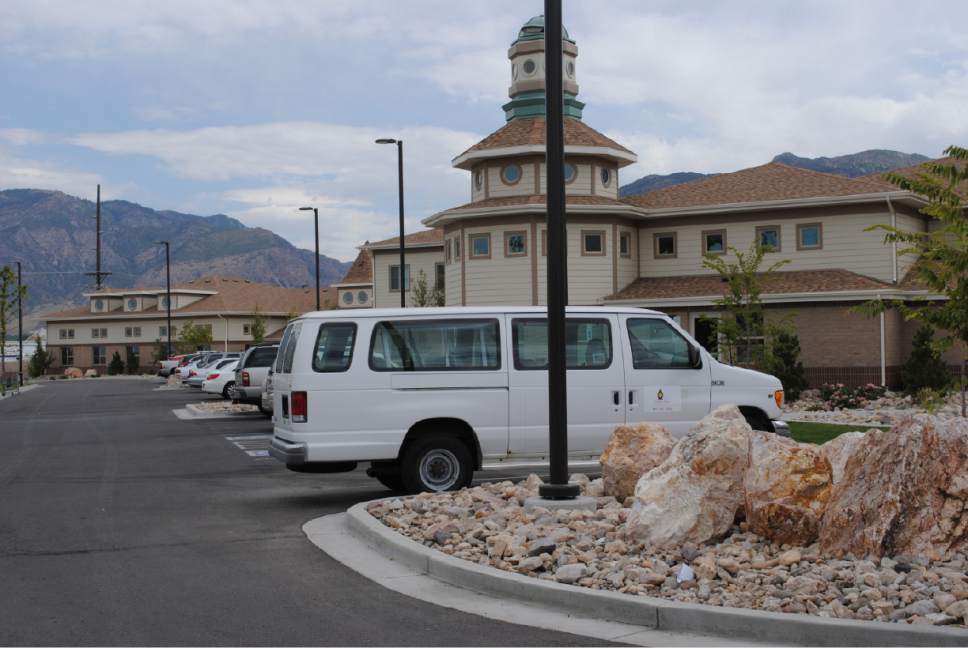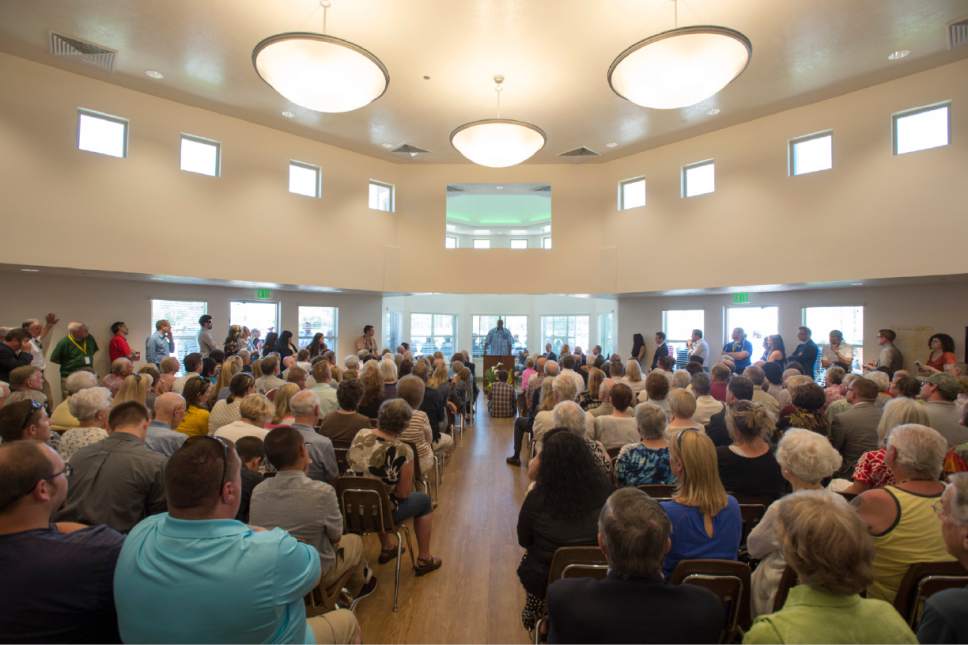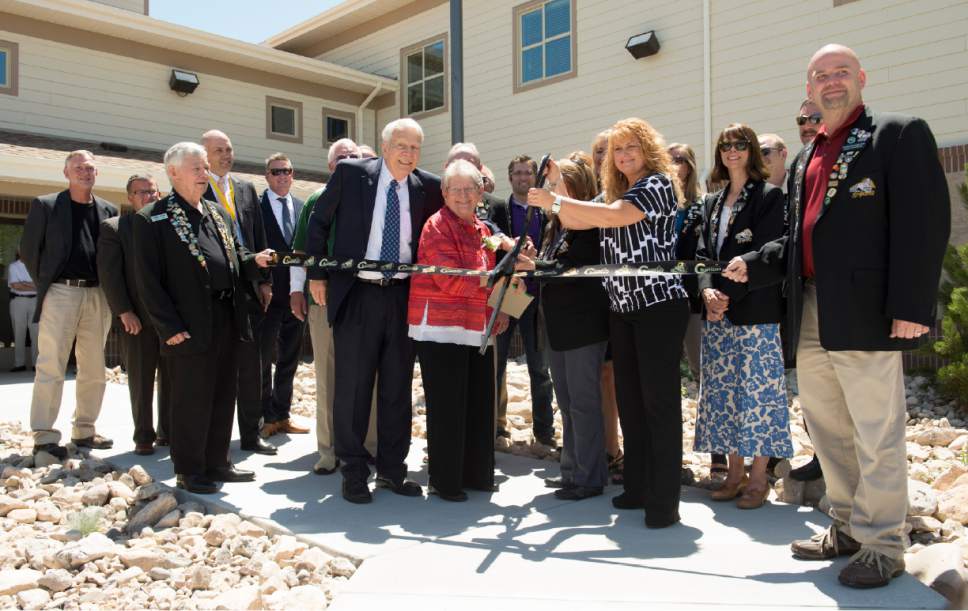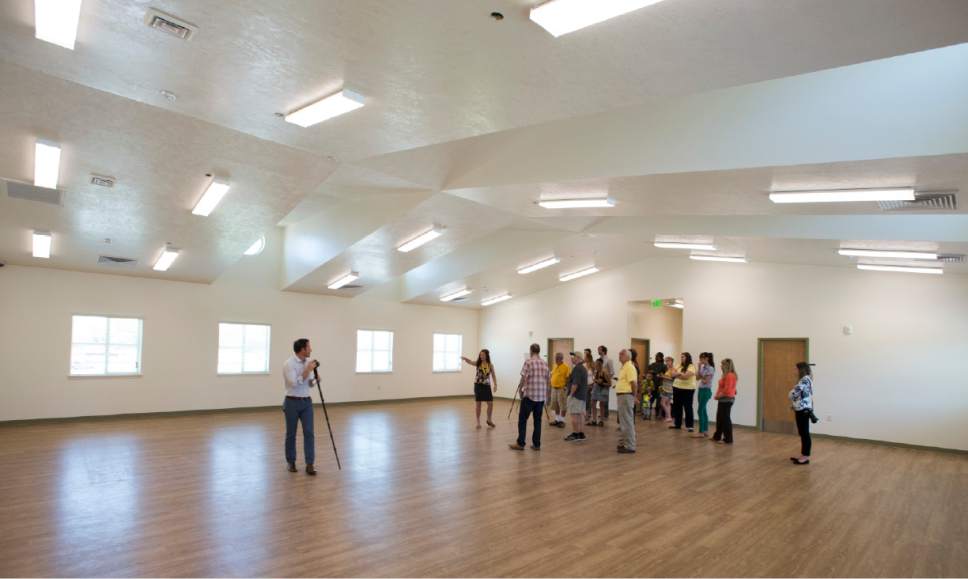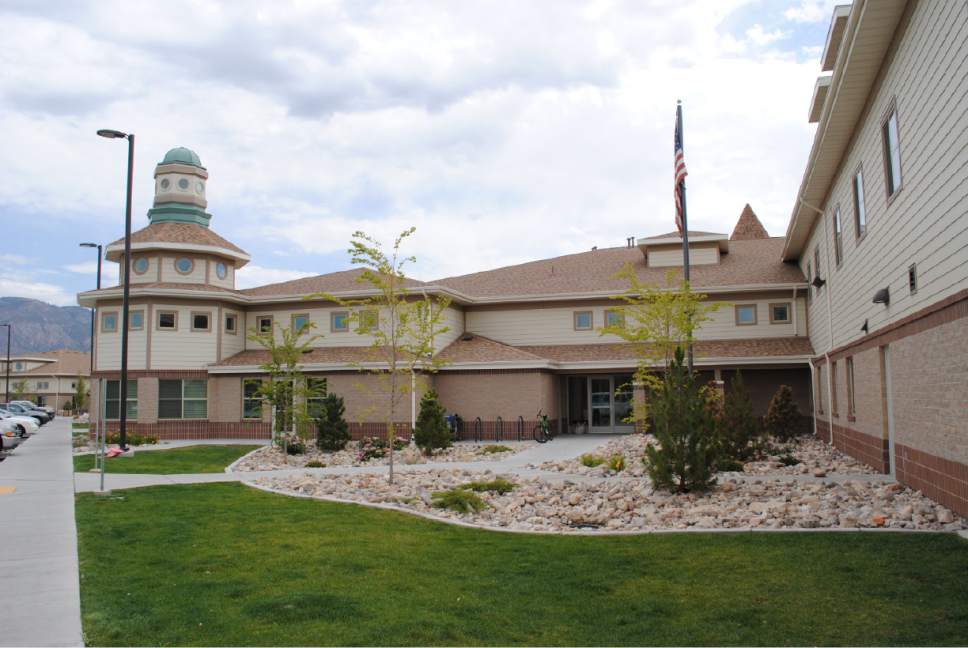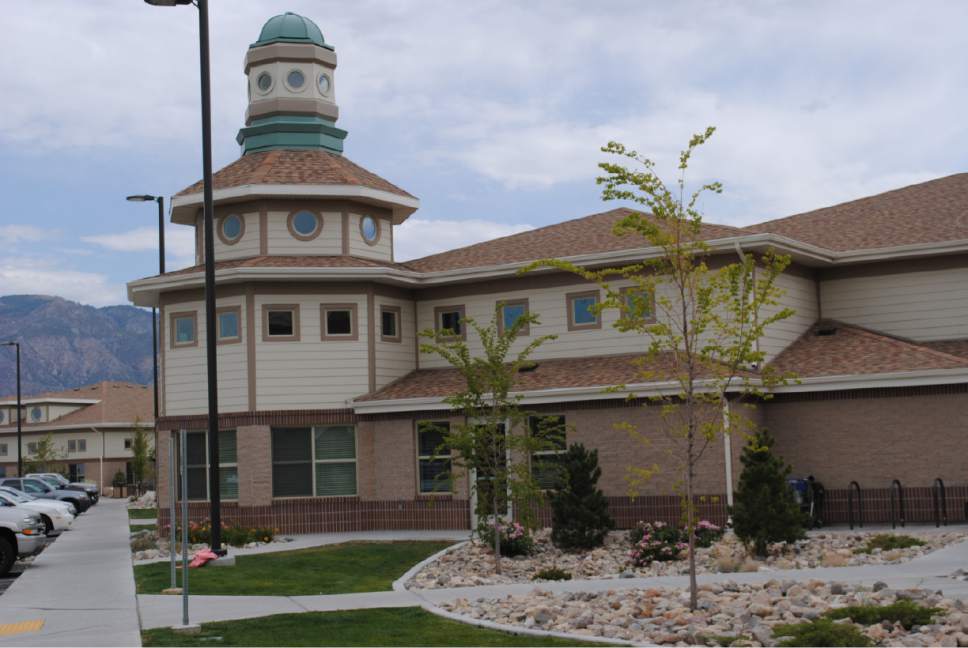This is an archived article that was published on sltrib.com in 2016, and information in the article may be outdated. It is provided only for personal research purposes and may not be reprinted.
The Salt Lake City Council is threatening to put its foot down on proposed homeless shelters in the capital city, and that could throw a wrench into a year-and-a-half of planning.
After more than 20 months on the sidelines during discussions surrounding new shelters and improved services for the city's growing homeless population, the council weighing in could change the outcome.
Salt Lake City Mayor Jackie Biskupski's site-selection commission and Salt Lake County Mayor Ben McAdams' Collective Impact initiative had settled on a plan for two new shelters that would house 250 to 300 people each.
A majority of the council now says facilities of that size would overwhelm a neighborhood. Some council members say a shelter should be no larger than 100 beds.
That has put the Biskupski administration in a tight spot as it seeks to show progress to the Legislature before December to secure more funding for a program that would total some $27 million. Earlier this year, lawmakers set aside $9.4 million toward a proposal for 500 beds and improved services. Advocates would like similar amounts of funding over the next two legislative sessions.
In December 2014, then-Mayor Ralph Becker assembled the 30-member site-selection commission, led by former Salt Lake City Mayor Palmer DePaulis and business executive Gail Miller. But Becker excluded the City Council from the commission.
After taking office in January, Biskupski opened one commission spot for a council member. Andrew Johnston, a social worker by profession, got the nod from his colleagues. Nonetheless, council members say they have been left out and are about to change the dynamic.
The council has to do what's best for the communities it serves, according to council members Erin Mendenhall, Derek Kitchen and Charlie Luke.
"We are going to be significantly changing the environment of the communities. So we have to be very careful," Luke said. "Two-hundred-fifty beds is large — an institutional-type setting. It's just too large."
Luke is among those who would like to see more, smaller shelters. But he acknowledges it will cost more money.
Kitchen, too, said he has concerns about the proposed 250-bed shelter plan. He added that the council should concentrate on the best solution, rather than be hemmed in by funding from the Legislature.
"We should not make a decision based on what pile of money is in front of us," he said. "It should be based on best practices across the nation."
But David Litvack, Biskupski's deputy chief of staff, told the council a promise had been made to lawmakers that state funding would go toward two shelters of 250 beds each.
"All I am saying is we asked [the Legislature] for two facilities. We made a commitment for two facilities," he said. "We don't have funding for more facilities."
Mendenhall wondered aloud whether Litvack was trying to "put the council in a corner."
"I hear the state doesn't care, as long as it's 500 people," she said. "The Legislature said 500 beds. It was the city who said two facilities."
In the end, however, the decision will be made by Biskupski — unless a zoning change is required for a proposed shelter site. The council would have to ratify a zoning change.
Moreover, Biskupski has pledged to hear out the council on shelter recommendations.
Mayoral spokesman Matthew Rojas said the administration is moving forward with its plan to bring two proposed sites to the council Nov. 1. The 250-bed proposal comes from research in cities such as Seattle, Portland, Ore., Chicago and San Francisco, he said.
"We are moving forward, with public feedback and listening to the council," Rojas said. "We want to serve the largest number of people with the money we have."
Council Chairman James Rogers said the council would continue its discussion on siting new homeless shelters at its Sept. 13 afternoon work session.


